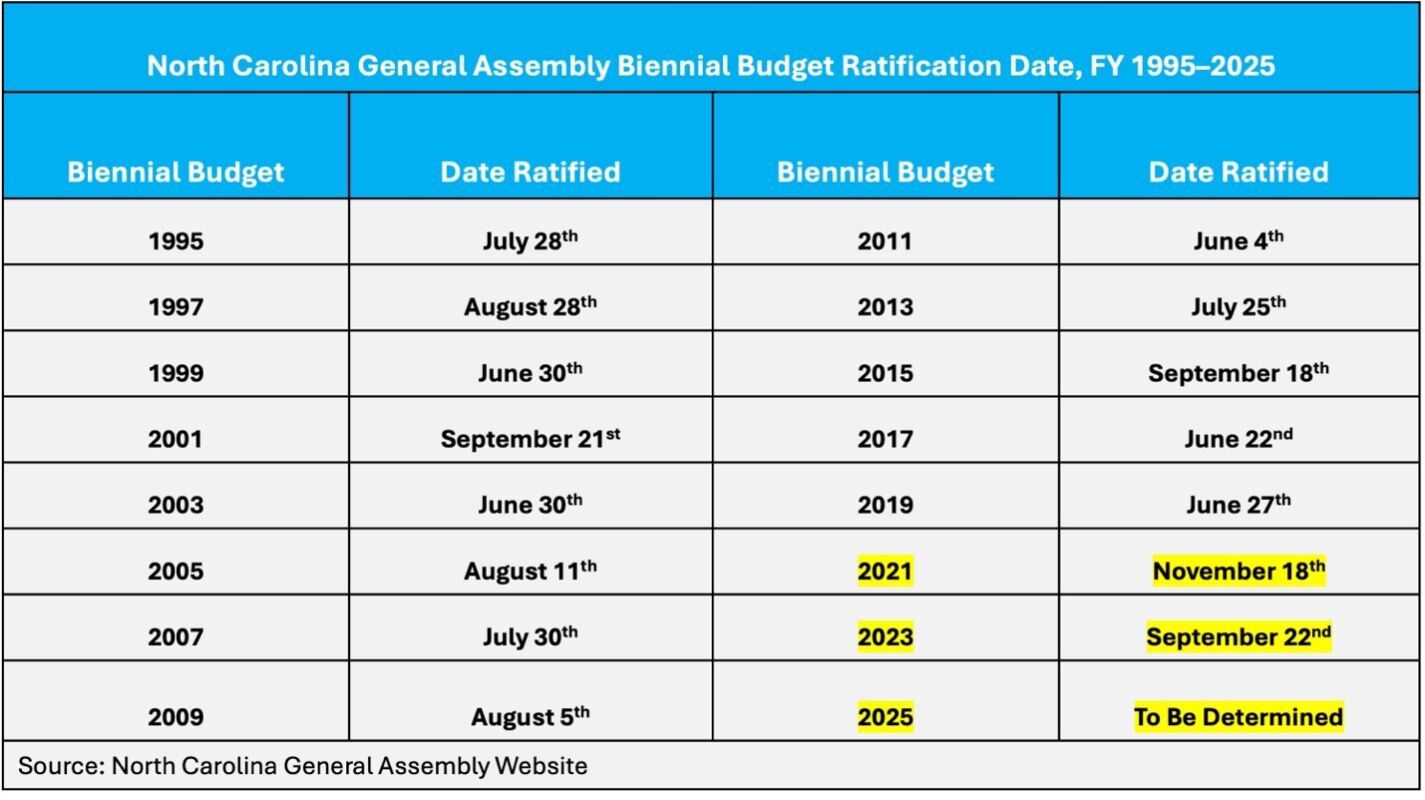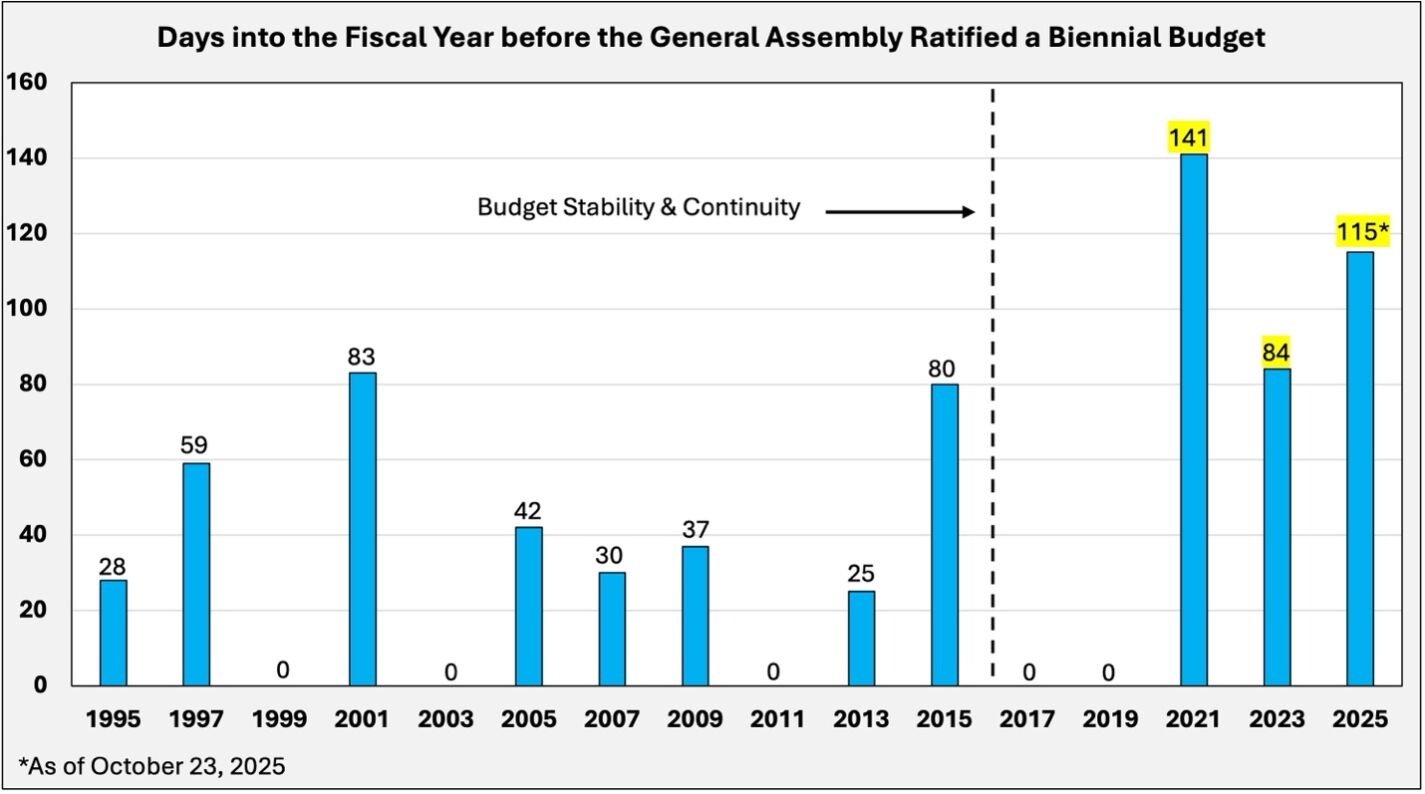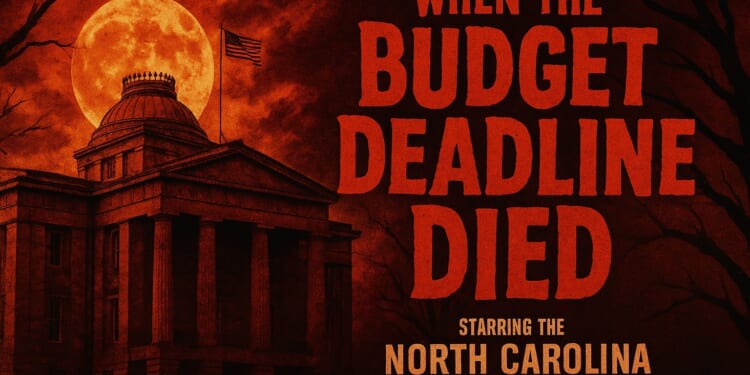North Carolina is now nearly four months into the fiscal year, yet lawmakers have not enacted a budget for the 2025–27 biennium — or even sent a proposal to the governor’s desk. Before 2016, when a budget wasn’t in place by July 1, the General Assembly had to pass continuing resolutions to maintain prior-year spending levels and prevent a government shutdown.
That changed with the adoption of the Budget Stability and Continuity provision in the 2016 budget adjustment. Under that reform, if no budget is enacted by July 1, state agencies are automatically authorized to continue operating at the previous year’s recurring spending levels; no stopgap legislation is required.
While the change eliminated the risk of shutdowns and the need for repeated continuing resolutions, it also removed much of the pressure to finish the budget on time. As a result, the date when a budget proposal finally reaches the governor’s desk has drifted later into the biennium.
The table below shows the dates the North Carolina General Assembly ratified biennial budgets for fiscal years 1995–2025. In other words, these are the dates when lawmakers passed a whole two-year budget and sent it to the governor for signature or veto.
Before the Budget Stability and Continuity provision took effect, the General Assembly typically ratified budgets in June, July, or August. Entering October without submitting a budget proposal to the governor simply didn’t happen. However, that pattern has changed dramatically.
The first two biennial budgets following the 2016 reform were both completed before July 1, but each faced a veto, and only in 2017 did lawmakers successfully override it. Since then, ratification has shifted from a predictable summer event to an increasingly delayed fall affair. In fact, for the three most recent biennia — 2021, 2023, and 2025 — the General Assembly has ratified budgets later than in any other cycle since at least 1995.

The table below shows the number of days into the fiscal year it took the General Assembly to pass a biennial budget and send it to the governor’s desk for approval or veto. Before the Budget Stability and Continuity provision, it was standard practice to have a budget ratified on time or within the first two months of the fiscal year. That expectation has since eroded.
In 2021, a budget was not delivered to the governor until nearly five months into the fiscal year. Now, in 2025, North Carolina is approaching the four-month mark with little sign of progress toward ratifying a full biennial budget.

The General Assembly can’t control whether or not the governor wants to politicize fiscal policies or veto their proposals; however, it does have the responsibility to deliver a biennial budget to his desk in a timely fashion.
Furthermore, state employees and teachers are left waiting to learn whether they will receive raises, while agency leaders are forced to plan without knowing their full budgets. The use of piecemeal “mini-budgets” only compounds the problem, making it nearly impossible to track total spending across the state and undermining transparency in how taxpayer dollars are allocated.
While transparency alone cannot guarantee fiscal accountability, it is a prerequisite for it. When everyday taxpayers cannot easily access or interpret total spending, which is nearly impossible under a patchwork of mini-budgets, genuine accountability diminishes.
If the General Assembly wants to avoid setting a new record for tardiness, it should put a budget on the governor’s desk before Thanksgiving. The current record — November 18, 2021 — shouldn’t be broken. When North Carolina families gather in late November to give thanks, it would be a shame if state policymakers gave us something to complain about.
Lawmakers shouldn’t need penalties to meet their most basic responsibility, but if this trend continues, perhaps it’s time to tie pay and per-diem stipends to budget ratification. Under such a reform, pay and stipends could be suspended as of July 1 and reinstated with back pay after the biennial budget is ratified. Withholding compensation until a budget is ratified should quickly develop the urgency necessary to ensure that North Carolina’s budgets are passed on time.











